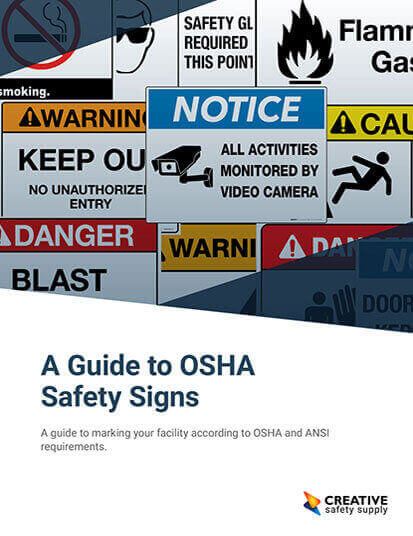
Corrosive materials (sometimes referred to as caustics) are substances that will, through a chemical reaction, damage or destroy other substances on contact. In general, corrosives are either acids or bases:
Acids: Hydrochloric acid, sulfuric acid, nitric acid, hydrofluoric acid, acetic acid, chromic acid, etc.
Bases: Ammonium hydroxide, sodium hydroxide, potassium hydroxide, etc.
Even though corrosives can be found in virtually every workplace, their potential to attack and destroy anything from human tissue to metals make them an extremely hazardous to employees. The stronger or more concentrated a corrosive substance is, the more dangerous it can be to human health.
Keeping Employees Safe around Corrosive Materials
Corrosive chemicals can pose serious risk to human health. Workplaces dealing with caustic materials will need to consider the following hazard controls and preventative measures:
- Training: Employees who will be handling corrosive chemicals should have an understanding of what substances they're working with, related hazards, and where the safety data sheet (SDS) can be accessed.
- Signs & labels: A GHS-compliant label must affixed to all containers of corrosive materials. Additionally, safety signs should be posted in the area to alert workers to potential hazards in the area.
- Engineering controls: Install and utilize chemical fume hoods and vacuum pumps wherever feasible.
- Personal protective equipment (PPE): Employers must provide PPE to employees working with corrosive chemicals. Even with numerous controls in place, it is imperative employees are protected in the case of an accident with safety goggles, body protection, and nitrile gloves.
- First aid: If an employee comes in direct contact with a corrosive substance, an emergency eyewash station/shower must be available to flush their eyes or rinse their skin.
Accidental spills or leaks of corrosive fluids should be promptly contained, but OSHA's hazardous waste operations must be followed in the event of a large spill of a corrosive chemical.
Similar Questions
- Why are emergency eye wash stations important?
- What are occupational health hazards?
- What are hazard controls?
- What are different types of workplace safety?
- What is the role of PPE in workplace safety?
- What is the hierarchy of hazards?
- What are common safety hazards in a facility?
- What does CBRN stand for?
- What’s inside a first aid kit?


